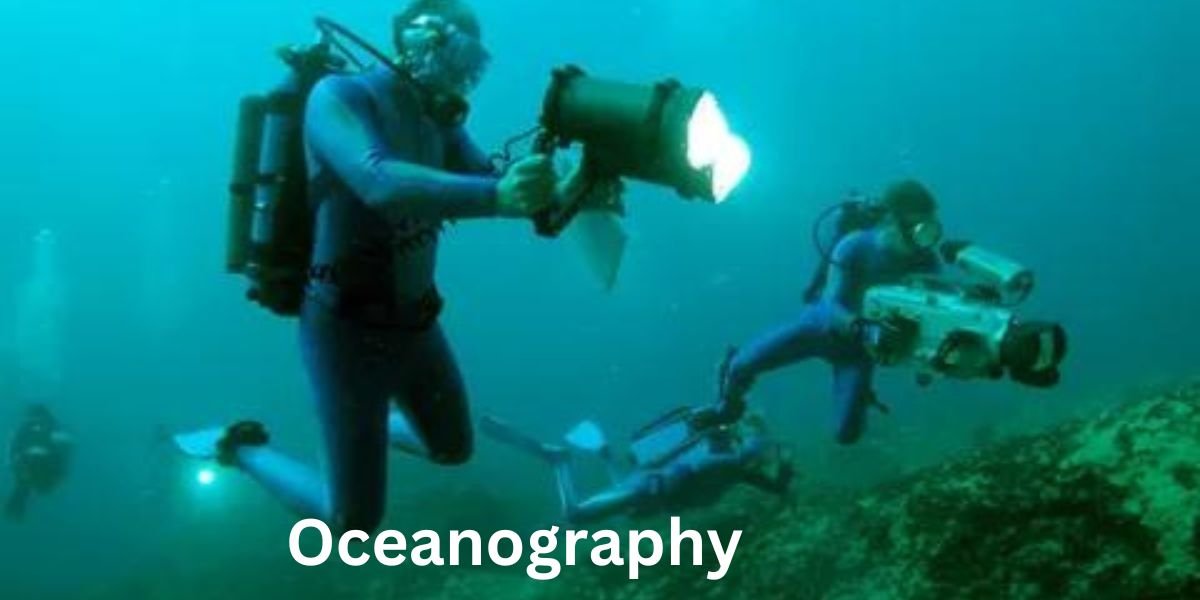Oceanography is an interdisciplinary science in which math, physics, chemistry, biology and geology intersect.
Oceanography involves looking at the residences (temperature, density, and so forth.) and motion (waves, currents, and tides) of seawater and the interaction between the sea and the ecosystem.
Chemical oceanography involves looking at the composition and the biogeochemical cycles that affect it.
Physical Oceanography
Physical oceanography is the observation of physical situations and physical methods inside the ocean, mainly the motions and bodily homes of ocean waters.
bodily oceanography is certainly one of several sub-domain names into which oceanography is split. Others consist of biological, chemical, and geological oceanography.
Descriptive physical oceanography seeks to analyze the sea via observations and complex numerical models, which describe the fluid motions as exactly as possible.
Dynamical bodily oceanography focuses ordinarily on the techniques that govern the motion of fluids with emphasis on theoretical studies and numerical models. these are a part of the massive area of Geophysical Fluid Dynamics (GFD) which is shared with meteorology. GFD is a sub-field of Fluid dynamics describing flows happening on spatial and temporal scales that are substantially motivated by the Coriolis pressure. Physical oceanography is the observation of physical situations and physical methods inside the ocean, mainly the motions and bodily homes of ocean waters.
bodily oceanography is certainly one of several sub-domain names into which oceanography is split. Others consist of biological, chemical, and geological oceanography
Descriptive physical science seeks to analyze the sea via observations and complex numerical models, which describe the fluid motions as exactly as possible.
Dynamical bodily oceanography focuses ordinarily upon the techniques that govern the motion of fluids with emphasis on theoretical studies and numerical models. these are a part of the massive area of Geophysical Fluid Dynamics (GFD) which is shared with meteorology. GFD is a sub-field of Fluid dynamics describing flows happening on spatial and temporal scales that are substantially motivated by the Coriolis pressure.
Organic oceanography
Organic oceanography involves the study of the organic organisms in the ocean (including life cycles and food manufacturing) consisting of bacteria, phytoplankton, and zooplankton and lengthening the extra conventional marine biology awareness of fish and marine mammals.
Geological oceanography focuses on the shape, functions, and evolution of the sea basins.
Oceanography is more than the sum of those precise branches. Oceanographers use a variety of gear to look at the sea, and much of the research involves multiple departments. Oceanographers accumulate discrete water, sediment, and biological samples through the use of ships (research Vessels). They deploy independent sampling structures along with buoys and gliders to gather statistics over time and space scales that can’t be accomplished with a delivery. Faraway sensing from planes and satellites lets oceanographers to get a worldwide view of a few parameters. Modeling lets in oceanographers to have a look at the past and are expecting the future country of the ocean (e.g movement, air-sea interactions, sustainability of fisheries, high-quality of water, and many others.).
FAQS
1 What causes Tides and how Do They affect Coastal areas?
Investigate the gravitational forces behind tidal actions and their results on coastal ecosystems, navigation, and human sports such as fishing and tourism.
2 What function do Marine Microorganisms Play in the global Carbon Cycle?
Study the importance of marine microorganisms, phytoplankton, and other microorganisms in carbon fixation, nutrient biking, and their impact on atmospheric CO2.
Discover the chemosynthetic strategies that maintain life around hydrothermal vents, their biodiversity, and their relevance to know-how lifestyles in extreme environments.
4 What Are the Influences of Ocean pollutants on Marine Life and Ecosystems?
Talk about the resources, sorts, and consequences of ocean pollutants, together with plastic waste, chemical contaminants, and oil spills, and compare techniques for mitigation and prevention.
5 How Does Ocean Exploration contribute to information on Earth’s history?
Investigate how deep-sea exploration, sediment center sampling, and marine geology make contributions to unraveling geological records, weather exchange research, and the evolution of marine organisms.




